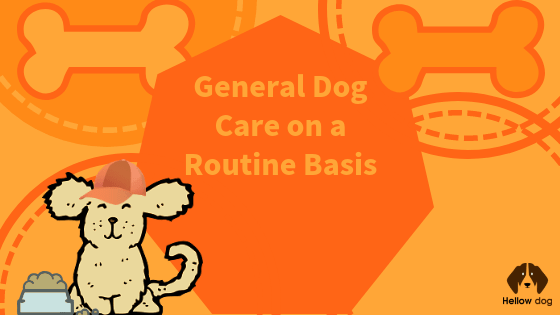Bringing a puppy into your home can be an exciting and joyful experience, but it can also be overwhelming and challenging if you’re not prepared. From choosing the right breed to finding a reputable breeder, there are many factors to consider when buying a puppy. This guide aims to provide you with the information you need to make an informed decision and ensure a smooth transition for both you and your furry friend. Whether you’re a first-time dog owner or an experienced pet parent, this guide will provide you with valuable insights on everything from puppy care and training to health and nutrition. So, let’s get started on your journey to fetch your perfect furry friend!

Choosing the Right Puppy
Choosing the right puppy can be a challenging and exciting process. Before you buy puppies at home, it is important to consider several factors, such as your lifestyle, budget, and living arrangements. Additionally, understanding the traits of popular breeds and finding reputable breeders or adopting from a shelter can help ensure that you find a puppy that fits well with your family and lifestyle. In this section, we will explore the various factors to consider when choosing a puppy and provide tips for finding the perfect furry companion.
Factors to consider before getting a puppy
Before getting a puppy, it’s important to consider factors such as your lifestyle, living situation, and financial ability to provide proper care. It’s also important to consider the breed’s energy level, exercise needs, and grooming requirements.
Finding reputable breeders
When looking for a reputable breeder, it’s important to do your research and ask for references. A good breeder will be knowledgeable about the breed, provide proper care and socialization for the puppies, and be willing to answer any questions you have. Avoid breeders who prioritize profit over the well-being of their dogs and don’t provide proper health testing and documentation.
Preparing for Your Puppy
Preparing for a new puppy can be an exciting but daunting task. It’s important to ensure that you have all the necessary supplies, including food and water bowls, a leash and collar, and a comfortable bed. Additionally, puppy-proofing your home is crucial to keep your furry friend safe and prevent any accidents or damage. Scheduling vet appointments are also essential to keep your puppy healthy, and planning for training and socialization can help your pup become a well-behaved and happy member of your family.
Bringing Your Puppy Home
Bringing home a new puppy is an exciting and memorable experience. To ensure a smooth transition, it’s important to have a plan in place. This includes introducing your puppy to your home and family, setting up a routine and schedule, and starting the process of house training and crate training. Your puppy will also need to visit the vet for their first check-up and vaccinations. With proper preparation and care, you and your new furry friend can enjoy a happy and healthy life together.
Raising Your Puppy
Raising a puppy is an exciting and challenging experience. As your puppy grows, you will need to provide them with proper care, training, and socialization. This includes basic obedience training, regular exercise, and a healthy diet. It’s important to be aware of common health issues and concerns for your puppy’s specific breed. By addressing these factors and providing a loving environment, you can help your puppy grow into a happy and healthy adult dog.
Common Challenges and Solutions
When it comes to raising a puppy, it’s important to be prepared for common challenges that may arise. This includes separation anxiety, teething, potty training, and behavioral issues such as aggression. However, with patience and consistency, these challenges can be overcome. Crate training can help with separation anxiety, providing appropriate chew toys can aid with teething, and consistency and positive reinforcement can help with potty training and behavioral issues. It’s important to seek the help of a professional trainer or veterinarian if these challenges persist.
Growing Up with Your Puppy
As your puppy grows up, their needs and behavior will change. It’s important to adjust your routine and care to accommodate these changes. This includes updating their diet and exercise routine, as well as continuing their training and socialization. Planning for the future is also important, including thinking about potential health issues and considering spaying or neutering. With proper care and attention, you can look forward to a happy and healthy life with your furry friend.
Conclusion
In conclusion, “Fetch Your Furry Friend: The Ultimate Guide to Buying Puppies” provides a comprehensive guide for those looking to bring a new furry friend into their home. From choosing the right puppy to raising and growing up with them, this guide covers everything you need to know to ensure a happy and healthy life for your new companion. Remember to consider all the factors before getting a puppy, find reputable breeders, and prepare your home for your new addition. With patience, love, and proper training, you can provide the best care for your puppy and enjoy a lifetime of happiness together.
FAQs
What should I look for in a reputable breeder?
When looking for a reputable breeder, make sure they prioritize the health and well-being of their puppies over profit. They should provide a clean and safe environment for their dogs, be knowledgeable about their breed, and be willing to answer your questions. Ask for health clearances and documentation, as well as references from previous customers.
How do I know if a puppy is healthy?
A healthy puppy should have bright, clear eyes, clean ears, and a shiny coat. They should be active and playful, with no signs of lethargy or coughing/sneezing. The breeder or rescue should provide documentation of vaccinations, deworming, and any other necessary medical care.
Should I get a puppy or an older dog?
This depends on your lifestyle and preferences. Puppies require more time and attention for training and socialization, but you can shape their behavior and habits from a young age. Older dogs may be more settled and trained, but may also have established behavior patterns that may be difficult to change. Consider your living situation, activity level, and commitment to training and care when making this decision.
How much exercise does a puppy need?
The amount of exercise a puppy needs varies by breed and age. Generally, puppies need short periods of exercise throughout the day, building up to longer walks and play sessions as they grow. Consult with your vet and research your puppy’s breed for specific exercise recommendations.
What should I feed my puppy?
Puppies require a high-quality, well-balanced diet that meets their nutritional needs for growth and development. Consult with your vet and research your puppy’s breed for specific dietary recommendations. Avoid feeding your puppy table scraps or human food, as this can lead to digestive issues and unhealthy habits.
How do I potty-train my puppy?
Consistent and patient training is key to successful potty training. Use positive reinforcement and rewards for good behavior, and establish a regular schedule for feeding and potty breaks. Crate training can also be helpful for managing your puppy’s access to the house and preventing accidents.
How do I deal with behavioral issues in my puppy?
Consult with a professional trainer or behaviorist for guidance on addressing behavioral issues in your puppy. Positive reinforcement training can be effective for shaping behavior, and consistency and patience are important for success. It’s important to address issues early and be proactive in preventing problem behaviors from becoming ingrained habits.







